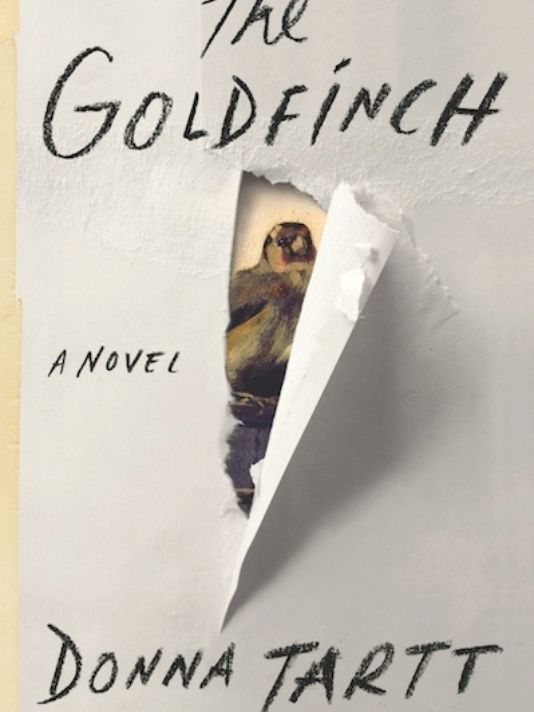
I just finished reading “The Goldfinch”. It’s a 771-page novel by Donna Tartt, spanning fourteen crucial years in the life of a teenaged boy, and its touches down in several different locations and events — all expertly described by author Donna Tartt. Last year it won the Pulitzer Prize, along with rave reviews from numerous book reviewers (including Stephen King). But I wondered if reading it on the Kindle changed my experience of the book…
It’s not just that it’s harder to flip forward to the beginning of the book. (Although I was stunned at how many keystrokes it took my older Kindle just to peek back at the first third of the book. It required five different actions — pressing Menu / selecting Go to… / hitting the Keyboard button / typing in ‘4210 Done’ / and then pressing ‘Location’ again… ) And it’s not just that I was missing that haunting illustration on the cover of the 1654 painting by Carel Fabritius…
I’d been pushing myself to finish the ebook before a book club meeting on Sunday, so I was trying to read 3% of the book every night this week. “I’m 94% done,” I bragged to my girlfriend one night, and then the next night told her “Now I’m 97% done!” The percentages seemed meaningless — what exactly is 97% of a Pulitizer Prize-winning novel? But it also lured me into thinking there was more to the ebook than there actually was — since it actually ended suddenly at…98%.
It turns out that the last 2% of the Kindle ebook was reserved for a special section titled “Outstanding acclaim for Donna Tartt’s The Goldfinch“, listing all the publications that selected it as one of the best books of the year. (The New York Times, Esquire, The Wall Street Journal, NPR’s Fresh Air…) The list goes on and on — the Sacramento Bee, the Seattle Times, the Kansas City Star — and eventually it also included Amazon.com (as well as Barnes and Noble). They’re listed right above the San Antonio Express-News and the Orlando Sentinel. And then there’s many, many pages filled with nothing but quotes from positive book reviews about the ebook I’d just finished reading…
Critics are already complaining about the “overwrought message tacked on at the end as a plea for seriousness” (which is how Vanity Fair summarized one critic’s response). But imagine my experience — waiting for the grand message that makes sense of the pile of plot and characters that filled the preceding 775 pages, only to discover that the book has ended prematurely, at the 98% mark. After weeks of reading and waiting for that thrilling literary pay-off…surprise! This novel has already ended…
So I’d like to suggest that Amazon use the last page of a story as the “100%” mark when displaying percentages in a Kindle ebook. Maybe it’s a technical challenge — these additional pages might be reported as 101% and 102% — but I think that’s preferable to the alternative. These final pages are really just advertising, and they’re much more important for people who are browsing a print copy in a bookstore.
And does anyone who’s finished reading a novel really want to then read excerpts from a review about it from The Sacramento Bee?